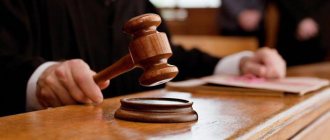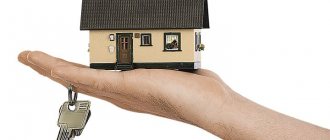Topic: How can the chairman of an HOA be brought to criminal liability?
evidence in the case was not carried out by the court in full; all the evidence taken together was not properly assessed in the verdict. The judicial act on compensation for material damage to an acquitted person in a criminal case at the expense of the state budget in connection with unjustified criminal prosecution, reinstatement in office was left unchanged, since the judicial act on
However, the specified funds of A.A. Filkova are transferred to the HOA cash desk. did not contribute, deliberately did not register their receipt in accordance with the accounting legislation, and, using her official position, disposed of the funds at her own discretion (part 4 of article 160, part 1 of article 201 of the Criminal Code of the Russian Federation). As a result of the criminal actions of Filkova A.A. The homeowners' association has a debt to OJSC "MOEK".
having extensive experience as a financial accountant. Based on the results of the inspection, this commission revealed gross violations in the work of the chairman of the HOA “U.” A.G.S. announced at the general meeting of the HOA (a copy of the act is attached to the application). At the end of the announcement, P.L.F. report, A.G.S. Instead of taking notes on errors into account, he began to blame P.L.F. in unprofessionalism and bias towards it, and he himself has neither an accounting education, work experience, nor the ability to communicate with people.
The Nevsky District Prosecutor's Office succeeded in bringing the chairman of the HOA "Shlisselburgsky Prospekt 9" to criminal liability.
The court found that Palamarchuk, who is the chairman of the HOA “Shlisselburgsky Prospekt Building 9,” was brought to administrative liability by an inspector of the state fire supervision in March 2013 in the form of a fine in the amount of 6 thousand rubles. The chairman, in violation of the Law, instructed the accountant to transfer funds from the current account of the HOA to pay the fine. The accountant sent the payment order to the bank. Palamarchuk partially admitted his guilt, explaining that he did not know that he did not have the right to pay the fine from the HOA account, since the inspector did not warn him about this. Taking into account the position of the state prosecution, Viktor Palamarchuk was found guilty of the crime charged and was sentenced to a fine of 10 thousand.
Didn't provide strong arguments in his defense
The chairman of the HOA called a lawyer for help, but the line of defense was weak.
The court rejected the argument that the second chairman of the HOA was an improper defendant because he was not the chairman of the HOA. The citizen acted by proxy, made transactions, and managed money. And an unlimited number of persons who had the opportunity to determine the actions of a legal entity can be brought to subsidiary liability.
The chairman's statements that he spent money “where it was needed” were not confirmed by anything other than the balance sheets signed unilaterally by the defendant himself.
Confused arguments about the existence and size of receivables could not counter the official conclusions of the forensic examination that the debtor had transactions leading to deliberate bankruptcy.
Responsibility of the HOA for the debts of residents
The court also rejected the last argument about the expiration of the statute of limitations for bringing to subsidiary liability. He explained that the limitation period should be calculated no earlier than the date of completion of the sale of the debtor’s property and the final formation of the bankruptcy estate.
Is it possible to prosecute the chairman of the board of an HOA?
In the said statement on page 02 in position 4.11 it is noted that Galimov Radik Magrufovich is
"head of a permanent executive body"
. However, no one elected him to such a position. He chose himself as the head of the non-existent permanent executive body of the partnership. He was elected to the position of chairman of the board of the partnership. According to the law and the charter, the chairman of the board is a person acting without a power of attorney.
Open forum
He registered as an individual entrepreneur and transferred money to himself from the HOA account for various “household” needs. More than 2 years passed and at a meeting of residents we finally got rid of him, re-electing another resident as chairman of the HOA. The residents (7 people), on the advice of a hired lawyer, filed a lawsuit against X. The trial lasted for 2 years and, finally, the court recognized all the violations and X’s debt to the HOA in the amount of 240 thousand rubles.
As part of the inspection, employees of the district prosecutor's office examined accounting documents and information contained electronically in the 1C accounting program belonging to the Alliance House HOA. Knowing this and acting for selfish reasons, the former chairman of the HOA, on behalf of the chairman of the Alliance House HOA, entered into a lease agreement with Veles LLC for non-residential premises located on the ground floor of the building, which is in common ownership of the Alliance House HOA. Thus, she caused damage to Veles LLC in the amount of more than 14 thousand rubles.
As a result, funds in the amount of more than 165 thousand rubles were received in the HOA’s settlement account to pay for utilities, which I. Lykov spent at his own discretion. “At the same time, the HOA “Pushkina, 30” did not actually provide utilities (hot water supply, cold water supply and sanitation, heating supply) to the residents of the apartment building,” it is emphasized in
Criminal liability of the chairman of the HOA (TSN)
Next, using examples, we will consider all possible options for bringing the chairman of the HOA (TSN) to criminal liability.27_upravljajushhego_tszh.jpg "/% Schemes for committing fraud by the chairmen of the HOA (TSN) can be varied. However, in practice, chairmen are quite lazy and do not indulge law enforcement agencies with any delights. Usually it all comes down to the banal withdrawal of funds from accounts or their withdrawal through front companies under concluded contract agreements, etc. The main criterion for determining the committed act as fraud is the focus of the actions on the theft of someone else's property through deception.
HOA chairmen began to be tried for illegal spending
According to investigators, the chairman of the HOA stole more than 2 million from members of the partnership.
rubles Two weeks ago, the editors of the newspaper met with an employee of the Chkalov administration, who also mentioned several houses in our area where the chairmen were “stealing”, and that the administration could not do anything except contact the law enforcement agencies, since residents elect their own board and the chairman, while not listening to recommendations to work with large management companies, for which reputation comes first. A serious problem with partnerships is that a lot depends on the personality of the chairman.
Criminal liability of the chairman of the homeowners association.
Lost to the opposition
After the sale of the identified property, the outstanding debt to creditors amounted to 2.5 million rubles. Part of this debt was created during the period of the previous chairman of the HOA, but most of it fell during the work of the second chairman.
The arbitration manager asked the court to hold both of them to subsidiary liability and built his line of attack technically and competently.
He referred to the fact that residents’ payments for the maintenance and repair of apartments, as well as for utilities, are of a targeted nature. Thus, the HOA should have spent the money received from residents only on relevant expense items, and not paid for other services.
The arbitration manager made a financial analysis, which revealed signs of deliberate bankruptcy in the actions of the HOA management. To consolidate these conclusions, the creditors asked the court to conduct a forensic examination in the expert organization they specified. The results of such an “independent” examination are usually known in advance.
The manager referred to the non-receipt of contracts and certificates of work performed by the debtor, which does not allow establishing the legality of spending the money. At the same time, there was no reason to believe that these documents were lost by the previous arbitration managers.
What are the responsibilities of the HOA chairman?
The main document of the HOA - its law - is the Charter, which sets out the basic rights and responsibilities of the HOA management bodies and the chairman. Every homeowner has the right to familiarize themselves with this document.
The Charter must specify a quorum - this is the number of owners present at the general meeting necessary for the decision of the meeting to be considered legal.
The charter may provide for the case of absentee voting.
It is proposed to hold the chairmen of the HOA board accountable for improper management of an apartment building
Does the HOA have the right to carry out, on behalf and at the expense of the owners of the premises, the development of allocated land plots adjacent to the apartment building? Find out from the material “Powers of HOAs” in the “Home Legal Encyclopedia” of the online version of the GARANT system.
Get full access for 3 days for free!
For these purposes, it is proposed to establish provisions in the Housing Code of the Russian Federation, according to which the chairmen and members of the board of the HOA are officials of this partnership.
Responsibilities of the chairman of the HOA
Chairman of the HOA elected at the general meeting of real estate owners
must strictly follow the job description.
He has the following responsibilities
:
- concluding on behalf of a legal entity contracts with utility companies that ensure the uninterrupted functioning of all economic and public services;
- quick response and elimination of any accidents and damage;
- control over the timely payment of utility payments by all property owners of this HOA.
New in blogs
Homeowners' association: we bring the self-proclaimed leader to criminal liability We continue the onslaught on scammers from among the chairmen of the board of the homeowners association I live at this address.
I am the owner of the apartment, but I am not a member of the HOA. The house is listed as being managed by an HOA.
- there is no sole management here, - according to the law, “the management of the activities of the homeowners’ association is carried out by the Board of the association” (Part 1 of Article 147 of the Housing Code of the Russian Federation)
A homeowners' association (HOA) is created by residents so that they can productively jointly manage a residential building.
As a result, residents can achieve efficient operation of the house and rationally use available resources. To coordinate work and control, residents of an apartment building elect a chairman.
The rights and obligations of the head of the HOA are stipulated by the Charter of the homeowners association, which is adopted at the general meeting.
Bringing the chairman of the board of the HOA to administrative responsibility
The board of the homeowners association has the right to make decisions on all issues of the association’s activities.
The chairman of the board of the partnership ensures the implementation of the decisions of the board (Art.
149 Housing Code of the Russian Federation). Thus, it turns out that if the board of a partnership makes an unlawful decision, the person obligated to fulfill it will be guilty of the offense committed.
One of the forms of management of an apartment building is a homeowners' association (hereinafter referred to as the HOA).
Subsidiary liability of the chairman of the homeowners association
The financial collapse of management companies, HOAs and TSNs affects both residents, resource suppliers, and the management of the management companies themselves. Lawyers told where to get money if too much debt has accumulated, and when the company’s management is obliged to declare its own bankruptcy. In case of insolvency, the court can force the founders and managers of the bankrupt to pay the debts of the organization if they violated the requirements of the law. And the owners of the premises are left to decide whether to create a new HOA/TSN or transfer the “reins of government” to a management organization.
Bankruptcy of homeowners' associations (HOAs), real estate owners' partnerships (TSN) and management companies (MCs) is not the most common, but also not an isolated story, shares the chairman of the Arbat MCA Natalya Nikolskaya. The main reason is debts, mainly to resource supply organizations (RSOs).
“Apartment owners do not pay for utilities, the HOA accumulates a debt to the RSO, there is nothing to pay it off, then bankruptcy - in a word, a classic scenario,” says Nikolskaya. The problem can be not only malicious, but also absent defaulters. It happens that the owner dies, the heirs are unknown, and the debt accumulates. “One HOA was looking for heirs for more than three years,” says Nikolskaya. “Everyone was very happy when they were found and paid the bills.”
The main advice for organizations is to actively work with debts. They have time for this, given that some services (for example, heating) are paid by residents all year, and the management company pays the RSO during the heating season (7 months), notes Moscow Administration lawyer Alexander Balakin. The lawyer advises not to neglect letters of claim and use the simplified procedure for collecting debt through the court. It considers the application within five days without summoning the parties and issues a court order, which is already a “writ of execution.” It can be presented to the debtor’s bank or bailiffs, says Balakin.
Where can I get money?
The owner may not pay for utilities for various reasons. And bailiffs, having received a court order, are often in no hurry to look for money. These circumstances do not in any way affect the debt, which continues to stubbornly grow (and with it penalties). The question arises of where to get the money, which is complicated by the fact that HOAs and TSNs are non-profit organizations. After all, their main concern is not making a profit, but rather ensuring the collection of payments.
“Some of our clients come up with additional contributions (for the maintenance of common property) in order to receive more funds,” says Natalya Nikolskaya, chairman of the Arbat MCA. Such payments are made with the consent of the meeting of homeowners, the expert emphasizes.
Another source of income is renting out common property. These could be antennas, advertising structures, boards in elevators or lobbies, or on the walls of buildings. If Internet providers have installed their equipment in the attic, you can also receive money for it. In general, the possibility of such income largely depends on luck, Nikolskaya believes and explains: “Some houses have a basement, while in others it has long been privatized. One high-rise building faces the roadway with a wall, and you can install an advertising board on it, and the other stands in the yard.” The funds received are used to cover losses or maintain common property, Nikolskaya reports. According to her, with a successful combination of circumstances, rent can significantly reduce the cost of maintaining a home.
When management pays the company's debts
Persons controlling a bankrupt organization (usually managers, founders and other beneficiaries - those who manage the company) can be forced to answer for its debts. This is possible in the following cases:
- the manager did not file for bankruptcy, although he should have done so;
- the controlling persons themselves deliberately brought the company to bankruptcy;
- debt on mandatory payments constitutes more than 50% of the requirements of the register of creditors;
- the manager did not transfer the company documentation to the manager.
Management companies (HOA, TSN) usually go bankrupt at the initiative of the RSO or on their own initiative. In the latter case, the application for insolvency is filed by the head of the organization. He is obliged to do this in the cases listed in Art. 9 of the Bankruptcy Law. In general terms - if the organization cannot (and will not be able to) repay its debts, explains Nikolskaya. The main liquid asset (or, simply, property) is the receivables of residents, so determining the financial condition is usually not difficult, says lawyer Balakin. If necessary, you can invite lawyers and auditors, Nikolskaya suggests.
She warns that ignorance is no excuse: if the chairman was not aware of the obligation to file, he still risks it. “The law is based on the fact that if you head an organization, you already have certain legal knowledge,” says Nikolskaya. – This is not directly stated in any legal act, but it follows from good faith, which presupposes awareness. If you don’t understand something, call a consultant. If you don’t understand anything at all, don’t take the job.” According to her observations, the chairmen of partnerships are different - there are those who are incompetent or who want to appropriate something, and there are talented business executives. In any case, the best protection from subsidiary liability is the conscientious performance of one’s duties, no matter how trivial it may sound, Balakin sums up.
When they will punish, when they will forgive: judicial practice in favor and not in favor of chairmen
– Two controlling persons of the Kazan HOA “Uritsky, 3”, Andrei Zheleznov-Lipets and Vadim Golub, were forced to answer for the debts of the partnership in the amount of 3.6 million rubles. in case A65-31168/2011. As the examination confirmed, for three years (from 2009 to 2011) the HOA used residents’ money not only for settlements with the RSO, but also for other – illegal – purposes. For this reason, the partnership accumulated debts, and it was declared bankrupt. By the way, it is unknown where the money went: the managers never received the documents.
– The chairman of the Oktyabrskoye HOA from the Saratov region, Tatyana Zakaryaeva, did not go to court if there were signs of bankruptcy and did not transfer the partnership documents to the manager. However, the court decided not to hold her vicariously liable in the amount of 371 thousand rubles. (Case No. A57-20390/2013). It is unknown why Oktyabrskoye became bankrupt - that is, the chairman’s guilt has not been proven, two authorities agreed. In addition, failure to transmit documentation does not in itself entail liability. It is needed for settlements with creditors. And since “Oktyabrsky” did not have any property, then Zakaryayeva had nothing to hide, the courts explained.
– Another chairman of the HOA, Tatyana Leontyev, under similar circumstances, on the contrary, managed to be held vicariously liable in the amount of 3.6 million rubles. (Case No. A21-1174/2014). She did not transfer to the manager the documentation of the Premium Homeowners Association, which was kept by another organization under the contract. But the courts decided that it was the chairman who was responsible for the safety of important papers. In addition, they applied a presumption: if the documents are not in order, it is assumed that it was the controlling persons who brought the company to bankruptcy.
– The head of Nizhny Novgorod HOA No. 284, Marina Mukhina, was held liable for subsidiary liability in the amount of 1.6 million rubles. for the fact that she concluded a contract for this amount to insulate the house without obtaining the consent of the residents (case No. A43-14238/2014). Moreover, the contract price was beyond the HOA's means, and the 885 thousand rubles paid to the contractor should have actually been used to pay for heat energy.
Possibility of creating a new management company in place of the bankrupt one
If a bankruptcy procedure has begun in relation to an HOA, it will not be possible to create a new one, because in one building there can only be one such organization (Article 136 of the Housing Code). But since the powers of the managers are terminated, the partnership risks actually stopping work. Lawyer Balakin proposes the following solution to the problem: the HOA, represented by the bankruptcy trustee, will enter into an agreement with the management company on the transfer of powers to manage the residential building. As a result, the management company will receive all the opportunities for work, explains Balakin.
Read more Regulations on the protection of personal data in LLC
After the bankruptcy proceedings are completed and the partnership is excluded from the Unified State Register of Legal Entities, it will be possible to create a new HOA or elect a third-party management company, says Nikolskaya. This is decided by the owners of the apartments in the building. In most cases, according to Nikolskaya, it is better to choose a management company. However, you can choose an HOA again if talented, enthusiastic managers are ready to lead it. Personnel decide everything, Nikolskaya sums up.
NEGATIVE CONSEQUENCES OF BANKRUPTCY OF HOA.
A. LEIBA
Article 65 of the Civil Code of the Russian Federation does not contain a ban on the bankruptcy of such legal entities as homeowners' associations and housing cooperatives, however, this mechanism is not suitable as one of the “incentives” for repaying debts to resource supply organizations for many reasons. There are enough similar examples in judicial practice, but few people think about the consequences.
HOA bankruptcy laws
The Housing Code of the Russian Federation does not establish any special conditions for the bankruptcy of homeowners' associations, housing construction and housing cooperatives (taking into account the fact that in the case under consideration there are similar regulatory regimes in relation to these legal entities), leaving the solution to this issue to the Civil Code of the Russian Federation and Federal Law of October 26, 2002 N 127-FZ “On Insolvency (Bankruptcy)”. Article 65 of the Civil Code of the Russian Federation provides that any legal entity, with the exception of a state-owned enterprise, institution, political party, religious organization and in some cases state corporations, state-owned companies and foundations, may be declared insolvent (bankrupt) by a court decision. Thus, in the event of failure to satisfy the claims of creditors for monetary obligations and (or) to fulfill the obligation to pay mandatory payments, if they are not fulfilled within three months from the date on which they should have been fulfilled, the HOA may be declared bankrupt (clause 2 Article 3 of Law No. 127-FZ), which subsequently entails its liquidation. At the same time, the HOA, in accordance with Part 6 of Art. 135 of the Housing Code of the Russian Federation, is not liable for the obligations of the members of the partnership, and the members of the HOA are not liable for the obligations of the partnership. However, it should be borne in mind that according to paragraph 4 of Art. 10 of Law N 127-FZ, in the event of bankruptcy of an HOA that has become a debtor through the fault of the controlling persons (chairman, members of the board), they may be held subsidiary liable for its obligations if the HOA’s own property is not enough.
Main causes of bankruptcy
Since the HOA is a full-fledged legal entity, it is subject to all types of legal liability, therefore various types of sanctions can be the reasons for the insolvency of the HOA. For example, this could be compensation to HOA employees for late payment of wages, including moral damage (Articles 236, 237 of the Labor Code of the Russian Federation), as well as civil sanctions for violation of contractual obligations in the form of interest (penalties), but the most a significant portion of unforeseen expenses may arise when the HOA is brought to administrative liability. The most common types of sanctions in this area are administrative fines for violation by persons responsible for the maintenance of residential buildings and residential premises of the rules for their maintenance and repair or the procedure and rules for transferring them to non-residential premises. These violations entail the imposition of an administrative fine on legal entities in the amount of 40 thousand to 50 thousand rubles. (Article 7.22 of the Code of Administrative Offenses of the Russian Federation), and there are already examples of such judicial practice (Resolutions of the Fifteenth Arbitration Court of Appeal dated 07/09/2012 in case No. A53-12076/2012, of the Thirteenth Arbitration Court of Appeal dated 07/15/2014 in case No. A56-9720/2014 ). However, it should be borne in mind that the HOA is not subject to liability under Art. 7.23.1 of the Code of Administrative Offenses of the Russian Federation for violation of information disclosure standards established by Decree of the Government of the Russian Federation of September 23, 2010 N 731 “On approval of the standard of information disclosure by organizations operating in the field of management of apartment buildings,” since administrative liability is provided only for cases of violation of this standard by organizations carrying out management on the basis of management agreements (Resolution of the Federal Antimonopoly Service of the Moscow Region dated August 12, 2013 in case No. A41-44897/2012). The chairman of the HOA as an official also cannot be considered as a subject of an offense under Art. 7.23.1 Code of Administrative Offenses of the Russian Federation (decision of the Astrakhan Regional Court dated October 19, 2012 in case No. 7-326/2012). In connection with the latest changes, it should also be borne in mind that, in accordance with Part 1.3 of Art. 161 of the Housing Code of the Russian Federation as amended by Federal Law No. 255-FZ of July 21, 2014, activities for the management of apartment buildings starting from May 1, 2015 are carried out on the basis of a license for its implementation, with the exception of the case where such activities are carried out by a homeowners association, residential complex or other specialized consumer cooperative. The HOA may also be subject to tax liability. Thus, for failure to submit documents and other information required by law to the tax authorities within the prescribed period, a fine of 200 rubles is established. for each document not submitted (clause 1 of Article 126 of the Tax Code of the Russian Federation). The lack of funds may be caused by the lack of professionalism of the HOA employees and its chairman. Thus, many contracts proposed for signing by the HOA provide for a clause on the direct debiting of funds from the HOA’s bank account based on the order of the creditor (contractor, executor) to write off funds to the bank in which the HOA has a current account. In the future, it is possible to change or terminate such an agreement only on the basis of a separate agreement, but, as a rule, the other party to the agreement no longer agrees to this. Most often, the most important of all reasons for the bankruptcy of an HOA is non-payment by the owners of residential and non-residential (if they are part of an apartment building) premises for the services provided. Since the HOA in most cases does not have any reserve funds (funds), if the owners of the premises fail to fulfill their obligation to pay for utilities and the maintenance and repair of housing, the HOA may develop a significant debt to resource supply organizations (hereinafter referred to as RSO) and other suppliers (contractors).
Read more Working two jobs at the same time officially
Lack of own property
As experience shows, a partnership or cooperative, even despite being granted the right to engage in entrepreneurial (economic) activities, extremely rarely owns any real estate or even movable property. By virtue of Art. 36 of the Housing Code of the Russian Federation, the common property of an apartment building, which includes the roof, attics, basements, elevator shafts, and the land plot under the apartment building, belongs by right of common shared ownership to the owners of residential and non-residential premises, and not to the HOA. The office equipment available to the HOA (computers, printers, telephones, etc.), furnishings, furniture and various tools are not of particular value in the bankruptcy case. The main asset of the HOA, which can be sold as part of a bankruptcy case in order to pay off the resulting debt of the HOA, is accounts receivable, that is, the debt of citizens and legal entities who are the owners of the premises of the apartment building where the HOA was created. According to Art. 128 Civil Code of the Russian Federation, Part 3, Art. 87 of the Federal Law of 02.10.2007 N 229-FZ “On Enforcement Proceedings”, accounts receivable is one of the types of property, and the right to receive it is a property right of the debtor, which can be recovered by a bailiff during the enforcement of a court decision on the collection of funds. But in the case of the sale of receivables both at auction and on the basis of an assignment agreement, the collector (the HOA creditor) will receive an amount, as a rule, significantly less than the amount of the HOA debt (the price for it fluctuates around 10% of the amount to be transferred) to satisfy his claims accounts receivable).
Foreclosure of property for HOA debts
Many controversial situations arise when foreclosure of property for the debts of the HOA. Let's give one example. In one of the cases, after the court decision came into force, the bailiff initiated enforcement proceedings to recover 2,613,250 rubles. with the HOA in favor of the joint stock company, during which they seized the property of the HOA in an apartment building, namely 3 rooms and 3 garage-boxes. After assessing the property, the bailiff decided to transfer it for sale. However, one of the HOA participants considered that this decision affected her rights to common property in an apartment building, and therefore appealed to the arbitration court with a demand to declare the bailiff’s decision illegal. Refusing to satisfy the stated requirement, the courts of three instances, citing Art. Art. 68, 69, 85 and 87 of Law No. 229-FZ, the provisions of Federal Law dated July 21, 1997 No. 118-FZ “On Bailiffs”, came to the conclusion that the contested decisions comply with these laws and do not violate the rights and legitimate interests of the participant Homeowners' Association I. Matkovskaya, which is not the owner of the seized real estate transferred for sale. The courts indicated that the recognition by the decision of the Simonovsky District Court of Moscow dated May 27, 2008 for I. Matkovskaya of ownership of a share in the common property and its release from seizure by the decision of the arbitration court cannot be the basis for declaring the contested court decisions illegal due to the fact that that the share of the latter is not identified in kind and it is not possible to identify it. The panel of judges of the Supreme Arbitration Court of the Russian Federation, leaving the court decisions unchanged, indicated that the contested decisions of the bailiff were made in relation to property owned by the HOA, and the property was released from seizure by the decision of the Moscow Arbitration Court dated 09/05/2011 in case N A40-60519/11-21-508, which is not possible to identify, is not indicated in these resolutions (Resolution of the Presidium of the Supreme Arbitration Court of the Russian Federation dated December 24, 2013 N VAS-11707/13). It should also be borne in mind that some courts recognize as legal the imposition of a penalty on the funds of the HOA received into the bank account of the information and settlement center (agent) from the owners of the premises of an apartment building, since, according to Art. 151, part 5 art. 155 of the Housing Code of the Russian Federation, payment for housing and communal services refers to mandatory payments that constitute the funds of the partnership, and clause 1 of Art. 77 of Law No. 229-FZ allows foreclosure on the debtor’s property held by third parties (Resolution of the Federal Antimonopoly Service dated March 4, 2010 in case No. A49-43/08).
Way out of this situation
It should be noted that filing bankruptcy applications with an arbitration court for legal entities and individual entrepreneurs has recently been used as a way to protect violated rights, which some experts have drawn attention to. There are cases when the chairman of the HOA applies to the arbitration court with such a statement, guided by the provisions of Art. Art. 8 and 9 of Law No. 127-FZ (Determination of the Arbitration Court of the Rostov Region dated September 7, 2007 No. A53-10385/2007-C1-36). But as experience shows, it is RSOs that most often apply to the arbitration court for the bankruptcy of HOAs (Resolution of the Thirteenth Arbitration Court of Appeal dated September 16, 2014 in case No. A56-65919/2013, Determination of the Arbitration Court of the Rostov Region dated October 20, 2014 in case No. A53 -21490/2014). In this regard, first of all, the RSO that enters into contracts for the supply of utilities with the HOA must take into account that if the HOA does not have its own or other funds sufficient to repay debts (and, as follows from the above, the HOA does not), due to clause 3 art. 59 of Law N 127-FZ, they, as applicants, are charged with court costs in the bankruptcy case and the costs of paying remuneration to arbitration managers (these amounts often amount to several hundred thousand rubles). In our opinion, in such cases it is more expedient to terminate the cases initiated against the HOA on the basis of paragraph. 8 clause 1 art. 57 of Law No. 127-FZ (Determination of the Arbitration Court of the Rostov Region dated October 29, 2014 in case No. A53-13051/2014) due to the lack of funds from the HOA sufficient to reimburse legal costs for the procedures used in the bankruptcy case. It should be noted that the rule providing for such a basis was introduced in Art. 57 of Law N 127-FZ Federal Law dated December 30, 2008 N 296-FZ “On Amendments to the Federal Law “On Insolvency (Bankruptcy)”, which was drawn to the attention of the Supreme Arbitration Court of the Russian Federation in paragraph 14 of the Resolution of the Plenum of the Supreme Arbitration Court of the Russian Federation dated December 17, 2009 N 91 “On the procedure for paying off expenses in a bankruptcy case.” In order to protect the rights of owners of HOA premises, in March 2013, State Duma deputies P. Krasheninnikov and G. Khovanskaya introduced draft Federal Law N 238759-6 “On amendments to Articles 61 and 65 of Part 1 of the Civil Code of the Russian Federation and Art. 7.23.1 Code of Administrative Offenses of the Russian Federation,” the purpose of which is to exclude the possibility of bankruptcy proceedings in relation to HOAs, as well as residential complexes and housing cooperatives. As stated in the explanatory note to the bill, “in practice, the basis for the insolvency of these legal entities most often lies in the failure of individual owners of residential and non-residential premises to fulfill the obligation to pay for premises and utilities, as well as actions of the board or chairman of the board of a partnership or cooperative that allow violation legislation and contractual obligations.” Some experts also propose to provide tax benefits to HOAs: in terms of income taxation, as well as when paying state fees when filing claims to protect the rights of consumers living in an apartment building. ——————————– Chelyshev M.Yu. On the Concept for the development of legislation on the management of multi-apartment residential buildings // Science and education: economy and economics; entrepreneurship; law and management. 2012. N 8 (27).
Read more Agreement on liquidated damages must be completed
In our opinion, this problem requires a detailed and balanced approach in order to respect both the rights and legitimate interests of the RSO, and the rights of owners of residential and non-residential premises in cases of financial difficulties in housing cooperatives and partnerships.
Our company provides assistance in writing coursework and dissertations, as well as master's theses on the subject of Housing Law, we invite you to use our services. All work is guaranteed.
Only in bankruptcy proceedings and only if the chairman’s intent to create a situation leading to bankruptcy is proven; in all other cases, no
According to Art. 123.12. Civil Code of the Russian Federation The Association of Real Estate Owners is not liable for the obligations of its members. Members of a real estate owners' association are not liable for its obligations.
According to Article 149 of the Housing Code of the Russian Federation, he is not liable unless his criminal actions are proven, which led to losses for the HOA. According to Article 149 of the Housing Code of the Russian Federation:
Article 149. Chairman of the board of a homeowners association
1. The chairman of the board of a homeowners association is elected for the period established by the charter of the association. The chairman of the board of the partnership ensures the implementation of decisions of the board, has the right to give instructions and orders to all officials of the partnership, the execution of which is mandatory for these persons.
2. The chairman of the board of a homeowners’ association acts without a power of attorney on behalf of the partnership, signs payment documents and makes transactions that, in accordance with the law, the charter of the partnership, do not require mandatory approval by the board of the partnership or the general meeting of members of the partnership, develops and submits for approval to the general meeting of members of the partnership the internal regulations of the partnership in relation to employees whose responsibilities include the maintenance and repair of common property in an apartment building, regulations on the payment of their labor, approval of other internal documents of the partnership provided for by this Code, the charter of the partnership and decisions of the general meeting of members of the partnership.
Good evening Alexander
According to the explanations contained in paragraph 22 of the resolution of the Plenum of the Supreme Court of the Russian Federation and the Plenum of the Supreme Arbitration Court of the Russian Federation dated July 1, 1996 No. 6/8, when resolving disputes related to the liability of the founders (participants) of a legal entity declared insolvent (bankrupt), the owner his property or other persons who have the right to give instructions mandatory for this legal entity or otherwise have the opportunity to determine its actions (part two of paragraph 3 of Article 56 of the Civil Code of the Russian Federation), these persons can be brought to subsidiary liability only in cases where insolvency ( bankruptcy) of a legal entity.
Bears subsidiary liability, but not in all cases. Only if the Arbitration Manager makes a financial analysis that reveals signs of deliberate bankruptcy in the actions of the HOA management.
Appointed within 10 days or appoint an SRO arbitration manager Art. 45 of the Federal Law of October 26, 2002 No. 127-FZ ten-day period. Therefore, the court app.
Dear Alexander! According to the charter of the HOA, which was rewritten from the Housing Code of the Russian Federation, homeowners are not responsible for the board of the HOA (the chairman is usually a member of the board), and the board is not responsible for homeowners, Art. 123.12. Civil Code of the Russian Federation.
Civil Code of the Russian Federation Article 123.12. Basic provisions on the partnership of real estate owners
1. A partnership of real estate owners is recognized as a voluntary association of owners of real estate (premises in a building, including an apartment building, or in several buildings, residential buildings, garden houses, garden or vegetable plots of land, etc.), created by them for joint possession, use and, within the limits established by law, disposal of property (things) that, by force of law, is in their common ownership or in common use, as well as to achieve other goals provided for by law.
(as amended by Federal Law dated July 29, 2017 N 217-FZ)
(see text in the previous edition)
2. The charter of a partnership of real estate owners must contain information about its name, including the words “association of real estate owners”, location, subject and purpose of its activities, composition and competence of the bodies of the partnership and the procedure for making decisions by them, including on issues, decisions on which are adopted unanimously or by a qualified majority of votes, as well as other information provided by law.
3. The association of real estate owners is not liable for the obligations of its members. Members of a real estate owners' association are not liable for its obligations.
4. By decision of its members, a real estate owners' association may be transformed into a consumer cooperative.
How to hold the chairman of an HOA accountable
The issue of bringing the HOA chairman to justice becomes relevant at the moment when his actions (based on the results of an audit by the audit commission) in any way contributed to causing damage to the partnership. The damage to the HOA can be objectively assessed by a specially formed audit commission, which has the right to control the activities of the HOA chairman.
If a violation has been identified, it must be confirmed by an act of causing damage to the HOA.
Criminal liability of the chairman of the homeowners association
It is difficult to answer absolutely correctly without knowing the circumstances of the damage, but on a general basis - no, the chairman will not be held responsible because responsibility for causing the damage arises from the one who caused the damage and in the presence of guilt.
The chairman in this case did not just waste material assets, but made the wrong decision. No, he exercised his legal right to transfer his powers or part of them to others.
Is it possible to bring the chairman of an HOA to criminal liability in the absence of accounting?
If the primary accounting records are stolen, especially if there is a statement to the police, it is not possible to bring the chairman of the HOA to criminal liability, only if it turns out that the above-mentioned accounting records were not stolen by the chairman himself, and even then, everything is very controversial.
As a rule, the chairman of an HOA can be prosecuted for fraud (Article 159 of the RF IC), misappropriation and embezzlement (Article 160 of the RF Criminal Code), and rarely – abuse of power (Article
How to hold the chairman of the HOA accountable.
The issue of bringing the HOA chairman to justice becomes relevant at the moment when his actions (based on the results of an audit by the audit commission) in any way contributed to causing damage to the partnership. The damage to the HOA can be objectively assessed by a specially formed audit commission, which has the right to control the activities of the HOA chairman.
If a violation has been identified, it must be confirmed by an act of causing damage to the HOA. Based on the results of the audit, the amount of material damage can be assessed and a decision can be made on methods of compensation.
Administrative and criminal liability of the chairman of the HOA
The legal entity (that is, the management staff and the chairman of the HOA) is responsible both to the homeowners and to the service providers. In particular, if, as a result of the failure to provide services or the provision of poor-quality services, harm was caused to residents, then, depending on the amount of damage, administrative liability of the legal entity or criminal liability of the chairman
or another member of
the HOA
.
If the homeowner has problems related to failure to fulfill the obligations of the HOA
, then the following options exist to resolve them:
- a written complaint to the chairman of the HOA
; - a complaint to the prosecutor's office, housing inspection or Rospotrebnadzor;
- statement of claim to the court.
Assistance from professional lawyers in matters related to the activities of HOAs
If you, as a member of the HOA, are not satisfied with the quality of the services provided, and all your appeals to the board and personally to the chairman of the HOA
were unsuccessful, then a complaint should be filed with the supervisory authorities. Don’t know how to do this correctly, what documents you need to collect? Professionals will give you competent advice and describe an algorithm of actions. If you do not have time to deal with this matter yourself, entrust it to us, and we will do everything to ensure that your rights are restored.
Criminal liability of the chairman of the HOA
The criminal liability of the chairman of the HOA can be regulated under the articles of the Criminal Code of the Russian Federation, including liability for:
- abuse of power;
- waste of material resources;
- negligence;
- appropriation of property belonging to third parties;
- fraud, etc.
The performance of a labor function of a special nature by the chairman of the HOA must be recorded in the employment contract, however, the law does not exclude the conclusion of a civil law contract. At the same time, the issue of payment or activities on a voluntary basis is regulated by the Charter of the Partnership, a sample of which includes all the points necessary to cover responsibility.
Important!
In order to avoid such litigation. When forming the position of the chairman of the HOA, his responsibility must be clearly stated in the job description or the Charter. It is important to indicate not only the limits of liability, but also possible penalties.
Responsibility of the HOA chairman - articles
There are no articles that regulate the responsibility of the HOA chairman as such. However, the consequences of his activities can be considered in terms of the operation of Art. 151 Housing Code, Art. 6.4 Code of Administrative Offenses, Art. 7.22 Code of Administrative Offenses and others. Disciplinary and full financial liability of the HOA board occurs in the event of concluding an employment contract, which, in turn, is regulated by Labor legislation.
Important!
In the event that there has been a crime of a material nature, but the primary accounting records of the partnership are missing or have been stolen, to hold the chairman of the HOA accountable . However, if the fact of theft is proven against the most responsible person (chairman), then the court may prosecute him for abuse of power, fraud or embezzlement.
A reasonable approach - assistance from professional lawyers on HOA issues
Legal provides free legal advice on the liability of the chairman of the HOA in the event of material damage to the partnership. In our work, we are guided by current legislative norms and job descriptions of the chairman of the HOA.
We will help you protect your rights and prepare a package of documents necessary to collect compensation. Resolving disputes and submitting claims to court is our specialty. Contact our experts today and get a comprehensive answer to the question of how to hold the HOA chairman accountable. “The legal sphere” is the choice of people who are ready to fight for their rights!
Powers of the HOA chairman
Dear readers! The articles describe only typical (template) situations and methods for solving them. It is worth considering that each case is unique, and solving a separate issue requires an individual approach. To find out how to act specifically in your case, we recommend using a free consultation at number 8 or write to us through the contact form.
HOA (homeowners' association) is a special form of self-government created by property owners. The main functions of this body:
- management of joint property of an apartment building;
- organizing regular repairs and maintenance of the building and common areas;
- ensuring an uninterrupted supply of residents with light, water, heat and other resources necessary for a comfortable life and work;
- care and arrangement of the local area.
Important!
The position of the chairman of the HOA is selective and is approved by voting at a meeting of property owners. The Housing Code of the Russian Federation does not regulate the functions of the chairman of the HOA .
However, his activities fall within the scope of the Russian Criminal Code. Thus, the chairman of the partnership
is
responsible
for:
- waste of funds allocated for housing maintenance;
- negligence in the performance of duties;
- exceeding the powers prescribed in the job description;
- appropriation of property belonging to the partnership or its members.









